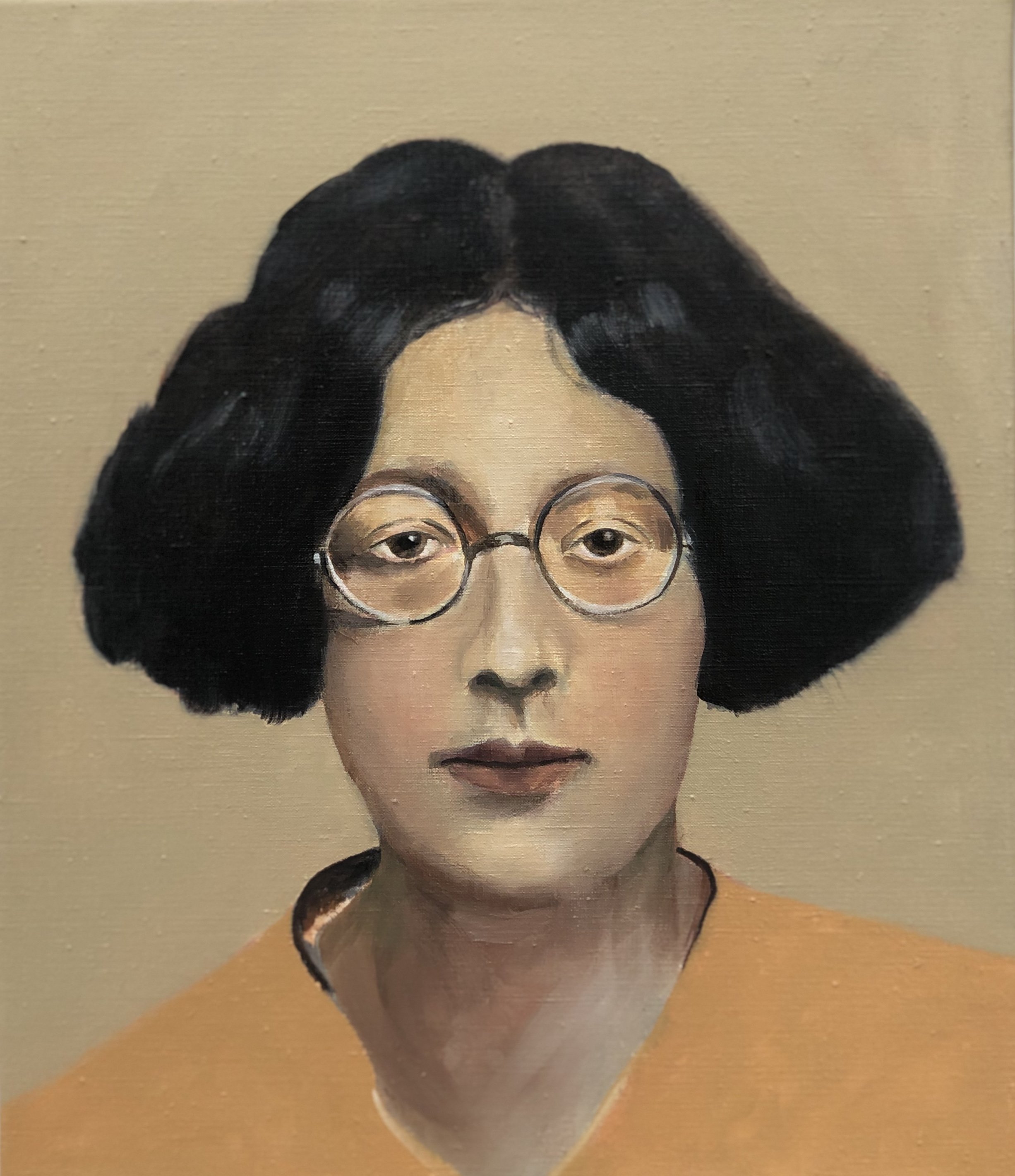Simone Weil was a French mystic and social philosopher, whose posthumously published works had particular influence on French and English social thought. Intellectually precocious, Weil also expressed social awareness at an early age. At five she refused sugar because the French soldiers at the front during World War I had none and aged 10 she declared herself a Bolshevik. After completing her studies in philosophy, classical philology, and science, Weil taught philosophy in several girls’ schools from 1931 to 1938 and often became embroiled in conflicts with school boards as a result of her social activism.
Oil on Linen 35x30 cm 🟢
To learn the psychological effects of heavy industrial labour, she took a job in 1934–35 in a Renault car factory, where she observed the spiritually deadening effect of machines on her fellow workers. In 1936 she joined an anarchist unit called the Durriti Column near Zaragoza, Spain, training for action in the Spanish Civil War, but after an accident in which she was badly scalded by boiling oil, she went to Portugal to recuperate. On returning to Paris, Weil continued to write essays on War, Peace, Labour and Management. She was one of the first to identify a new form of oppression not anticipated by Marx, where élite bureaucrats could make life just as miserable for ordinary people as did the most exploitative capitalists
After the German occupation of Paris during World War II, Weil moved to the south of France, where she worked as a farm servant. She escaped with her parents to the United States in 1942 but then went to London to work with the French Resistance. The exact cause of her death remains a subject of debate. Malnutrition and overwork led to a physical collapse, and during her hospitalization she was found to have tuberculosis. She died after a few months spent in a sanatorium.
Weil’s writings, which were collected and published after her death, fill about 20 volumes.
